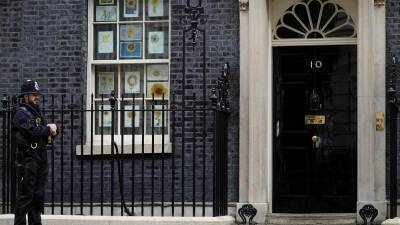If the rest of Europe can protect the poorest from rising bills, why can’t Britain?
The governor of the Bank of England, Andrew Bailey, has warned that Britons are facing a “historic shock to real incomes”, with energy price rises this year larger than any single year in the 1970s. The disastrous impact this crisis will have on people’s livelihoods is clear: 600,000 could fall into poverty and millions will be unable to afford essentials. But so far the chancellor, Rishi Sunak, has only introduced halfhearted half measures.
As we face an epochal challenge to living standards and energy supply, there are policies already in place elsewhere that Sunak could learn from: countries such as Germany and Ireland are doing more to protect the most vulnerable, doing more to switch to energy-saving measures and doing more to wean themselves off fossil fuels.
This year, the German government has provided a €200 boost for people on benefits, as well as a €100 topping up of child support and at least €270 for people on housing assistance, next to a €300 lump sum payment (pre-tax) to all employees. A low-income family with two children could receive at least €657, plus a possible heating subsidy of €490. With other measures this could fill more than two-thirds of the cash shortfall caused by increased energy prices. By comparison, the average low-earning UK family would receive less than half of that amount (£270, or about €325) plus bills support that will have to be paid back.
Elsewhere, France and Italy have moved much more decisively than the UK to limit energy price increases facing households. This has been done through measures including requiring the state energy company to sell electricity at well below market price and tax cuts on electricity.
Equally eye-catching are examples of innovative policies to
Read more on theguardian.com


![Cardano [ADA] stages a 10%+ rally but there’s something you should look out for - ambcrypto.com - city Santimentit - city Santimentif](https://finance-news.co/storage/thumbs_400/img/2022/5/6/24511_6x2.jpg)
![Here’s why Tron [TRX] rallied before encountering resistance in its triangle pattern - ambcrypto.com](https://finance-news.co/storage/thumbs_400/img/2022/5/6/24510_r15.jpg)















